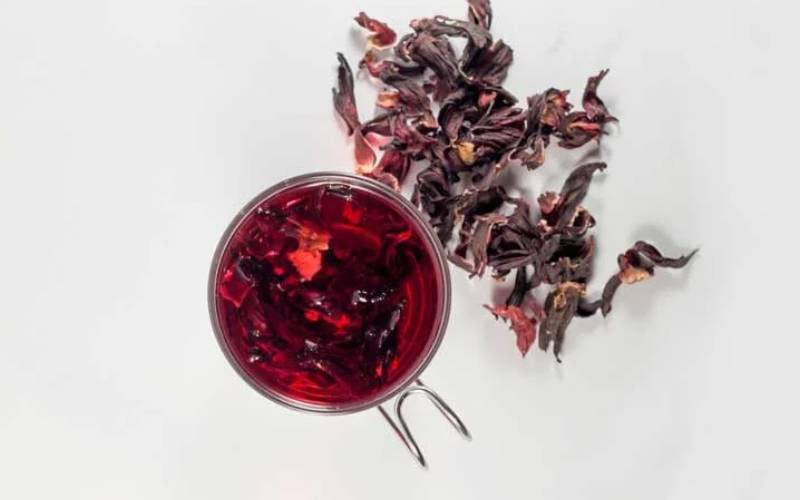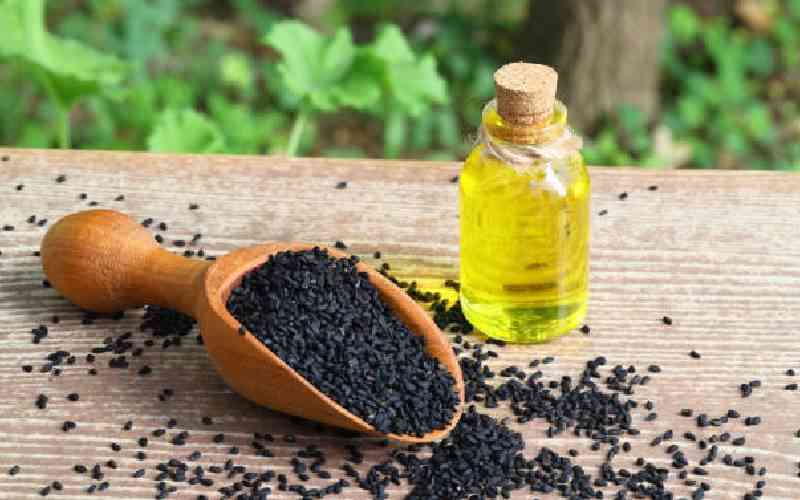
A lot of women are now averting the use of manufactured products on their hair and are opting for more natural products that are readily available in our homes.
This trend has been a buzz on social media with more and more women joining the team natural bandwagon.
These herbs and spices, according to web testimonies, have not only one but multiple benefits for our naturally dense African hair.
But, before we get into the list of herbs you can use on your hair, it's crucial to know that there's no scientific evidence that these herbs and spices will work for your specific hair type.
Without further ado, here are some herbs and spices you may use on your hair, along with their benefits:

Cloves
Cloves are usually used as a spice as it flavours foods such as pilau, meat and chicken dishes but also, it has remarkable benefits to hair such as making it longer, eliminating dandruff, preventing premature greying of hair, curbing hair loss and also soothing the scalp.
- Returning to work after maternity leave
- Teach your children good values at an early age
- Keeping your children busy over the holidays
- Safely include your children in the kitchen with these tips
Keep Reading

Rosemary
Rosemary is a known natural herb that is used to cook and add flavour to foods such as beef, chicken dishes, seafood and vegetables but when it comes to hair it also plays a pivotal role in making it grow longer, thicker, shinier and reducing irritation such as dandruff because of its richness in antioxidants.

Hibiscus
Hibiscus, a well-known flower has always been used to lower blood pressure, promote weight loss and lower cholesterol when dried and used to make tea but when it comes to the hair it benefits it by making it longer, acting as a natural moisturiser, reducing dandruff and preventing early greying.

Black seeds
Black seeds come from the nigella sativa plant and are used as natural herbs. They have a variety of benefits to us such as; spicing up stews, baking bread and biscuits and dressing salads. They also have medicinal value as they can be used in treating digestive and respiratory conditions but it also stimulates hair growth, making it shinier and silky.

Fenugreek
Fenugreek is a versatile herb that is a common ingredient in Indian dishes and is often taken as a supplement as it reduces the risk of diabetes, improves weight loss, reduces the risk of heart and blood pressure conditions and is also used to grow hair and treat thinning hair and dandruff, as it has moisturising properties.
How to prepare these herbs for use:
The herbs and spices can be easily sourced from any supermarket or marketplace and are usually cost-friendly. Ensure you dry your spice properly before grinding any of them into a fine powder.
Afterwards, mix the grounded spice with carrier oils so as to make your hair oil. The oils may include; sweet almond oil, olive oil, coconut oil or castor oil. Mix them properly and strain them to remove the large particles, store them properly and the hair oil is now ready to use.
One can add essential oils so as to eliminate the strong scent of the herbs, they include; lavender oil, peppermint oil, thyme oil, tree tea oil and many others.
For the hair spray, one can use a double boiler where the spices or herbs are placed in a glass bowl with some water over a boiling pot of water. Let the herbs boil till bubbles are seen and a constant colour change is maintained. Remove the bowl and let the mixture cool down before pouring it into your spray bottle.
The spray can be stored in your fridge so as to prevent it from going bad but it can only be used for a maximum of two weeks before going bad as they are no preservatives being used.
If you aren't sure how to preserve these herbs or use them on your hair, you can do online research or consult a trusted beautician on the same.
As much as these herbs and spices aid in hair growth one must never forget to eat a balanced diet as it provides the needed vitamins and nutrients needed for healthy hair.
Also, before using these products on your hair, seek a professional's help so as to know about any allergic reactions and various side effects that may occur.
 The Standard Group Plc is a multi-media organization with investments in media platforms spanning newspaper print
operations, television, radio broadcasting, digital and online services. The Standard Group is recognized as a
leading multi-media house in Kenya with a key influence in matters of national and international interest.
The Standard Group Plc is a multi-media organization with investments in media platforms spanning newspaper print
operations, television, radio broadcasting, digital and online services. The Standard Group is recognized as a
leading multi-media house in Kenya with a key influence in matters of national and international interest.

